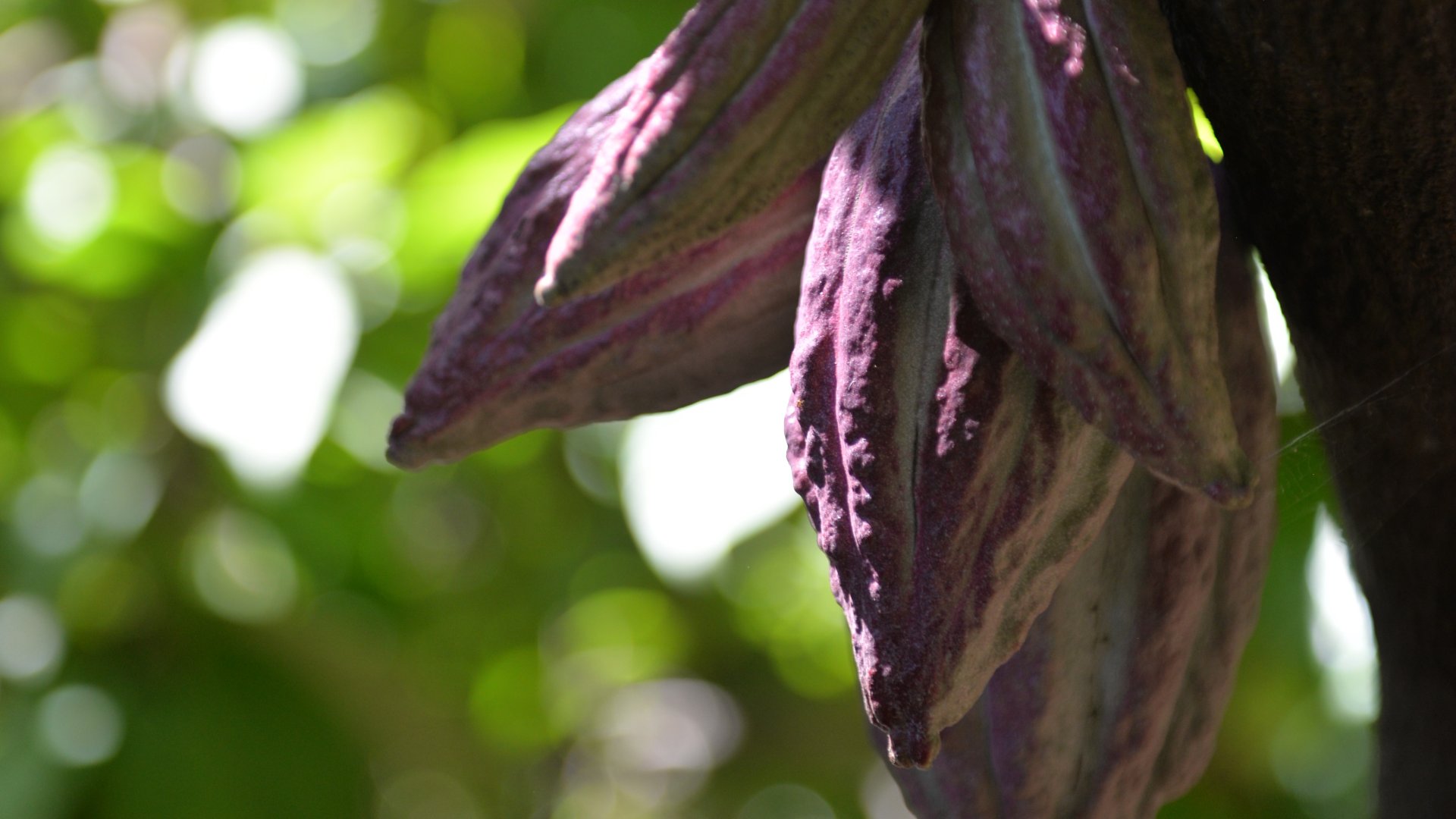Landscape learnings from Madagascar’s Cocoa Value Chain
Projects in the DFCD operate within a wider societal and environmental context, referred to as a 'landscape'. By collaborating with multiple stakeholders at different governance levels in this context, we can extend our impact beyond just company boundaries, and address long-term climate and biodiversity challenges in ways that are more locally-appropriate and impactful.
Madagascar’s northern landscape is made up of several types of ecosystems, dominated by a vast expanse of forests. Its humid and wet climate, with extreme variances in altitude, from 75m to 2,876m, make it a biodiversity hotspot. The local economy is driven by agriculture and livestock, with farmers producing cash crops (cocoa, vanilla and coffee) and annual crops (rice, cassava and banana).
However, methods used to produce vanilla and rice in particular can put both biodiversity and livelihoods at risk. Slash-and-burn techniques are causing deforestation and land degradation, as farmers look to expand their lands into more fertile areas. As the effects of climate change worsen, reduced resilience of the land will become a bigger issue.
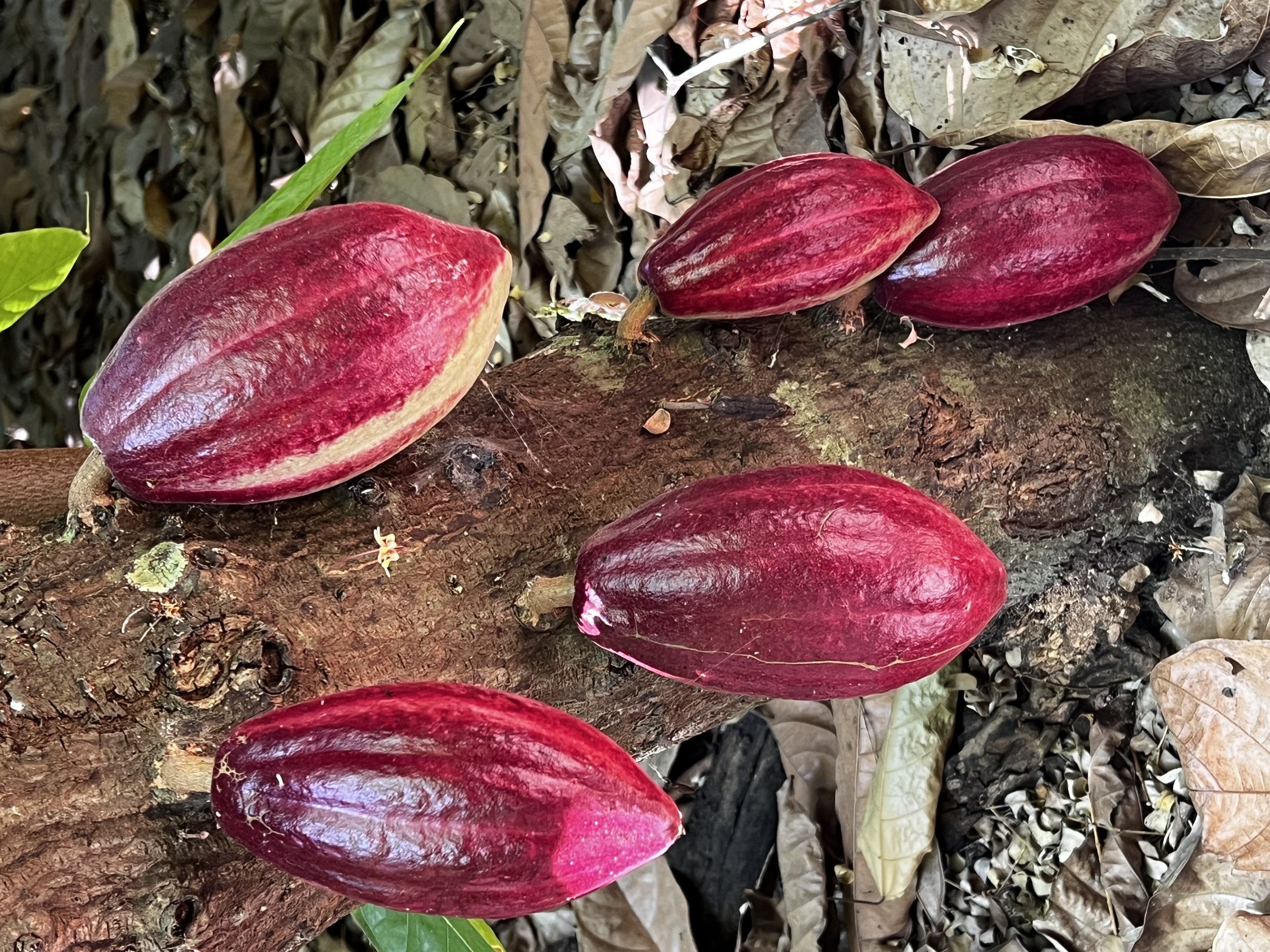 Cocoa tree, Tony Rakotondramanana / WWF Madagascar
Cocoa tree, Tony Rakotondramanana / WWF Madagascar
A promising sign is the high motivation for sustainable environmental practices, with strong participation from local NGOs, Community-based organisations and community members. Since cocoa can be cultivated through agroforestry, and can benefit farmers' livelihoods, WWF and the DFCD are exploring how to promote more cocoa production in the area.
WWF-Madagascar therefore recently carried out landscape-level work to examine the cocoa value chain. They engaged with key stakeholders like the National Cocoa Council (CNC), and with farmers themselves, to see firsthand what opportunities exist and how to address risks. These activities help to ensure future DFCD investments are suitable to the multiple actors in the landscape, and are as impactful as possible.
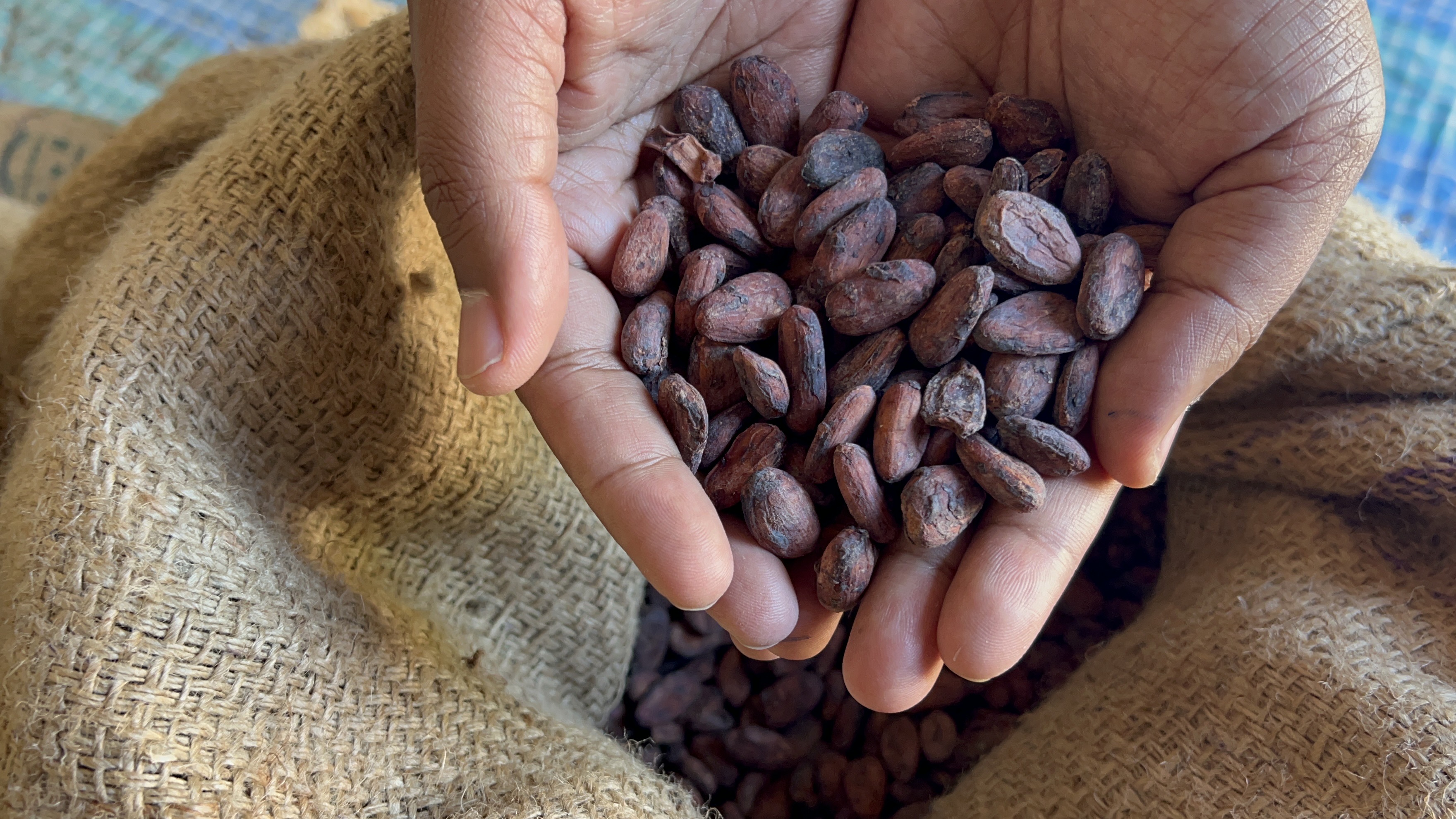 Farmer holding cocoa beans, Tony Rakotondramanana / WWF Madagascar
Farmer holding cocoa beans, Tony Rakotondramanana / WWF Madagascar
DFCD/WWF's Expedition to Madagascar's Cocoa Heartland
Did you know that Madagascar produces some of the world's finest cocoa beans? According to the International Cocoa Organization (ICCO), 100% of Madagascar's cocoa is categorized as fine flavour, a testament to its exceptional quality.
Last August, Santatra Razafindratsimba, DFCD's Origination Lead for WWF Madagascar, and Tony Rakotondramanana, WWF Communications Manager, embarked on a journey to the heart of Madagascar's cocoa-growing region, Ambanja, in the northern part of the country. Their mission was to explore the potential of cocoa agroforestry as an impact pathway to address some of the landscape risks, by providing a sustainable solution for local livelihoods and environmental conservation.
The trip was an eye-opener, revealing the immense potential of organic cocoa agroforestry. This model not only benefits farmers but also contributes to biodiversity conservation and climate resilience. Madame Latifah, a cocoa harvester, explained to them the benefits of working with cocoa. Multiple harvest-moments throughout the year mean her income is more steady and, furthermore, she stressed the opportunities within the value chain for women to get involved.
Mme. Latifah, Cocoa Farmer, Tony Rakotondramanana / WWF Madagascar
However, the sector also faces significant challenges, including climate change, ageing trees, and market volatility. After meetings with farmers and the National Cocoa Council, the team discussed several key opportunities and challenges:
- Climate Change: Declining rainfall patterns have reduced yields and impacted quality.
- Ageing Trees: Many cocoa trees are decades old, limiting productivity and increasing vulnerability to pests and diseases.
- Market Volatility: Fluctuating global cocoa prices can severely impact farmers' incomes.
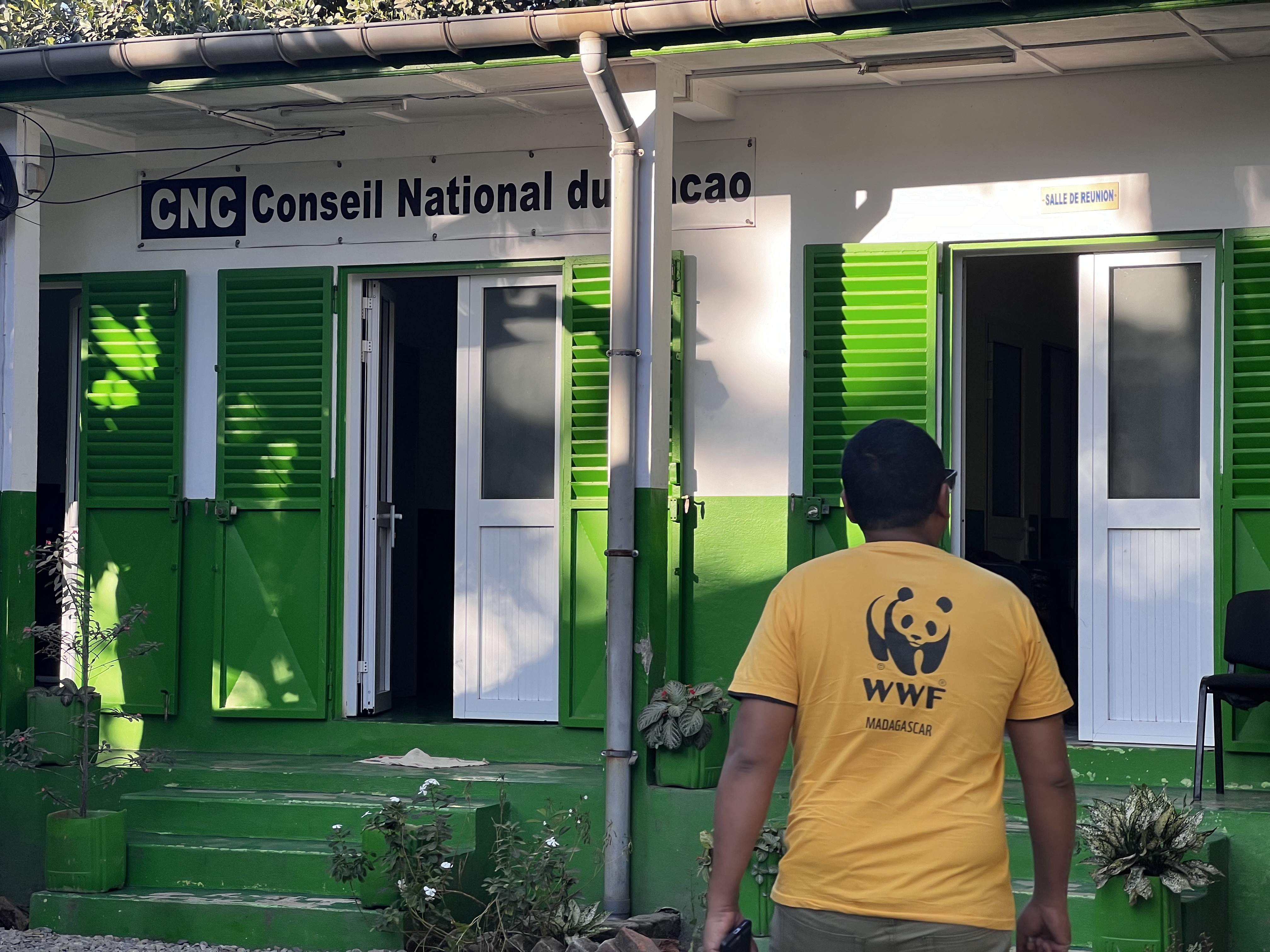
Santatra Razafindratsimba, DFCD's Origination Lead for WWF Madagascar, visits the National Cocoa Council, Tony Rakotondramanana / WWF Madagascar
To address these challenges, farmers, with the support of the CNC and private sector partners, are taking the following steps:
- Planting New Trees: Collaborating with research institutions to develop climate-resilient varieties.
- Establishing Nurseries: Creating community-managed nurseries to ensure a sustainable supply of quality seedlings.
- Investing in Irrigation: Implementing climate-smart irrigation systems to mitigate the impact of water scarcity.
- Diversifying Markets: Exploring new export markets to stabilise prices and increase farmer incomes.
- Strengthening Cooperatives: Empowering farmer cooperatives to improve bargaining power and facilitate collective action.
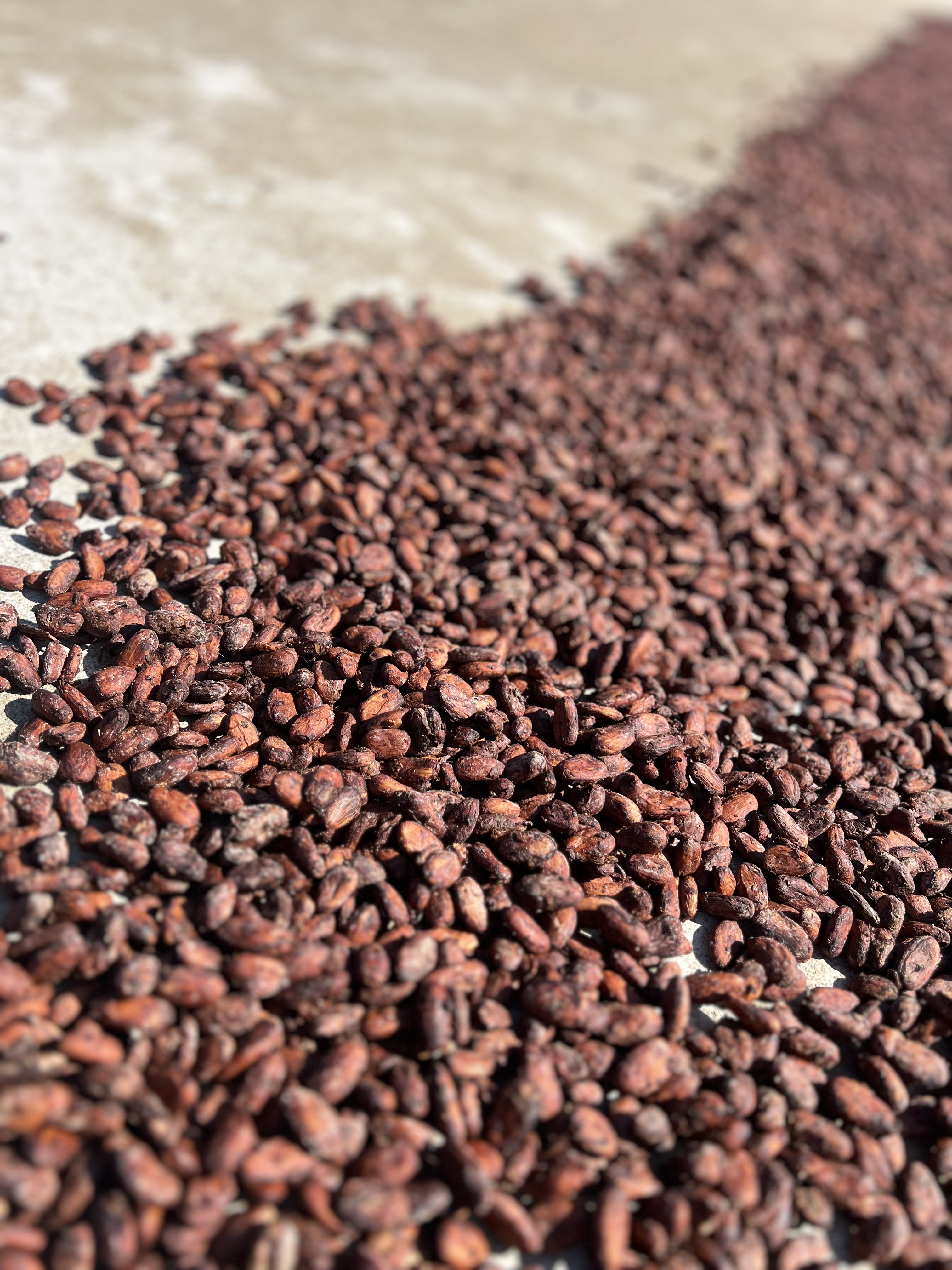 Cocoa beans drying, Tony Rakotondramanana / WWF Madagascar
Cocoa beans drying, Tony Rakotondramanana / WWF Madagascar
By embracing sustainable practices and innovative solutions, WWF and DFCD are confident in the potential within Madagascar's cocoa sector to thrive, providing viable livelihoods for farmers, while promoting resilience in the landscape and keeping ecosystems healthy.
>> Learn more about how the DFCD supports a Landscape Approach

